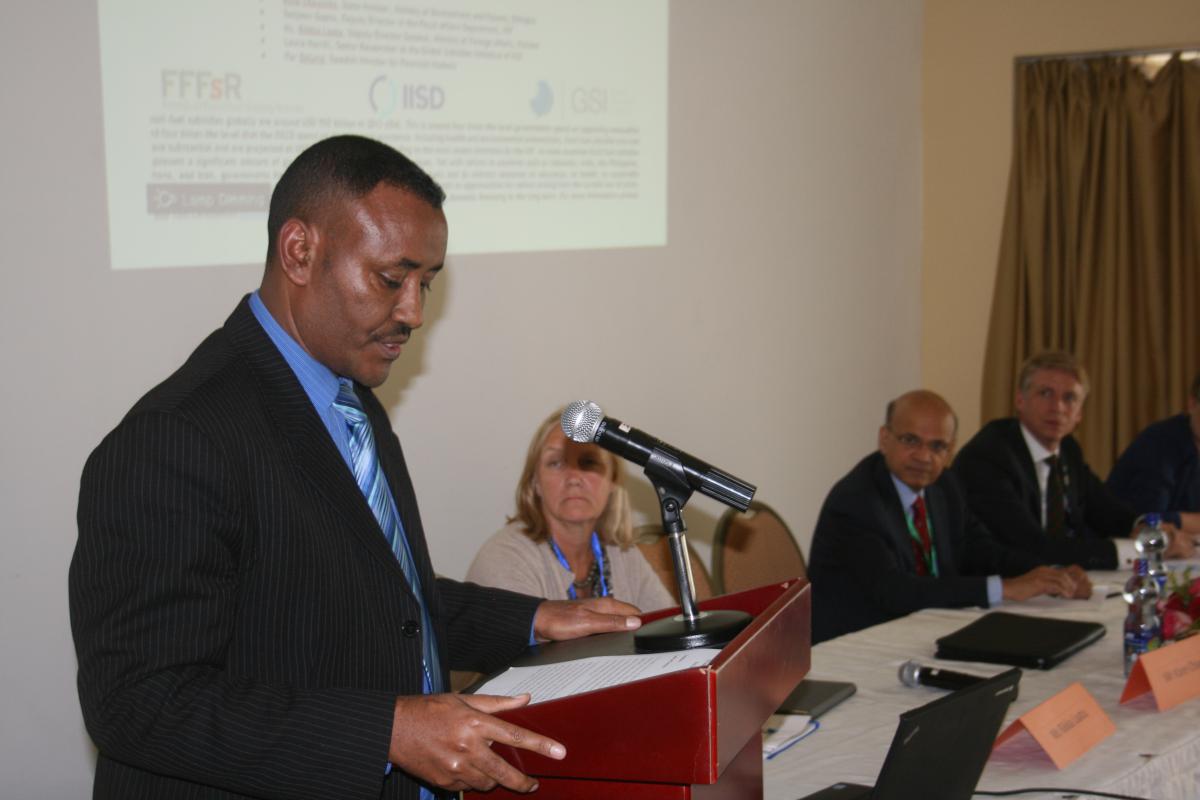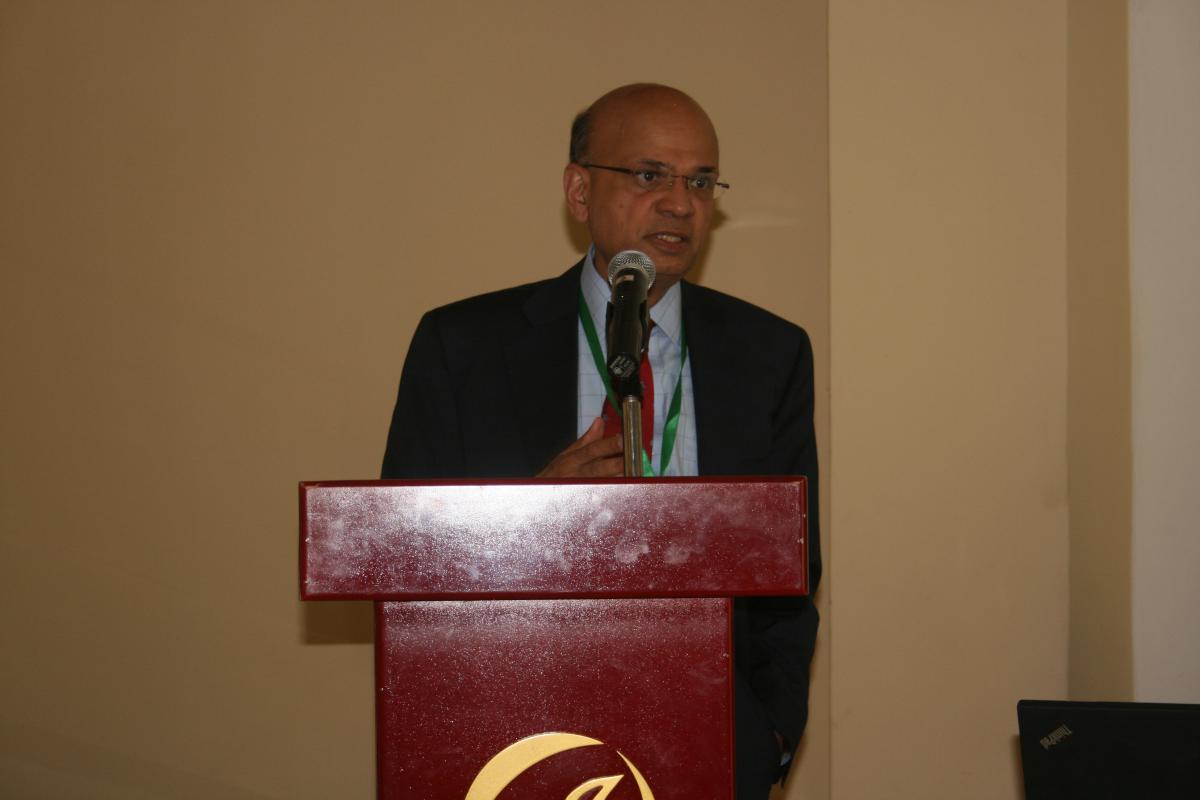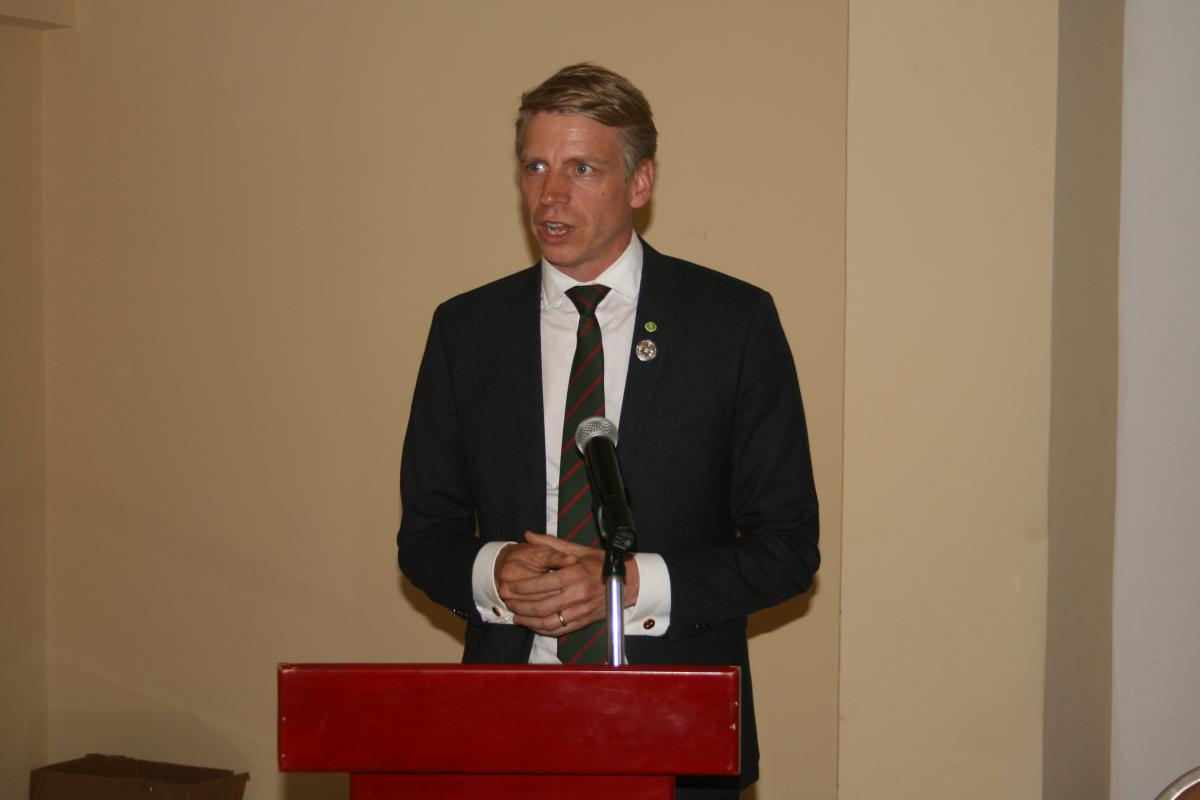Financing for Development from Fossil Fuel Subsidy Reform: Lessons Learned from Country Experiences
Addis Ababa—July 14—The Global Subsidies Initiative (GSI) organized a high-level event on the role of fossil fuel subsidy reform as a means to provide financing for sustainable development. The event was held at the "Financing for Development Conference" in Addis Ababa, Ethiopia, and was supported by the government of Finland and the Friends of Fossil Fuel Subsidy Reform.
The event was designed to draw out country experiences and share best practice on how the reform of fossil fuel subsidies can be utilized to finance development priorities. Besides representatives from the government of Finland, Ministers from Ethiopia and Sweden participated in the event that also saw presentations from the International Monetary Fund (IMF) and the GSI.

In his opening remarks, Kare Chawicha, State Minister for Environment, Ministry of Environment and Forests, shared important lessons from Ethiopia’s energy reform journey. Mr. Chawicha pointed to Ethiopia’s stated goal of attaining middle income status by 2025 while at the same time developing into a carbon neutral economy. Moreover, Mr. Chawicha noted that the removal of fossil fuel subsidies in 2008 has contributed hugely to the economic development of Ethiopia. Among other things, reform efforts have contributed to the generation of electric power from renewables including hydro, wind, geothermal and solar power.
After the opening remarks, Ms. Riikka Laatu, Deputy Director General, Ministry of Foreign Affairs, brought in the Finnish perspective by introducing Finland’s approach to reviewing its own subsidies. Following “the good, the bad and the ugly” principle, Finland has categorized existing subsidies according to a three tier system. “The good” subsidies are those actually deemed relevant, targeted and effective. “The bad” are those subsidies that are no longer relevant and “the ugly” are subsidies that are badly designed and badly targeted. Finally, Ms. Laatu, underlined Finland’s efforts to tighten its energy taxation by introducing a CO2 tax and increasing the price of transport fuels.
After the Finnish intervention, Mr. Sanjeev Gupta, Deputy Director in the Fiscal Affairs Department, IMF, presented the most recent estimates from the IMF of global energy subsidies. According to these figures, global subsidies including health and environmental externalities are substantial, projected at US$ 5.3 trillion in 2015. Mr Gupta noted that eliminating post-tax subsidies in 2015 could raise government revenue by $2.9 trillion (3.6 percent of global GDP), cut global CO2 emissions by more than 20 percent, and cut pre-mature air pollution deaths by more than half.

Mr. Gupta also noted that energy reform is “urgently needed in many countries” for both domestic and global reasons and that the current low international energy prices provide a window of opportunity for reform. Mr. Gupta also presented detailed material about the geographical distribution of global energy subsidies in both absolute terms as well as in per cent of GDP.
Laura Merrill, GSI, highlighted concrete country reform experiences, and drew attention to efforts in the Philippines, Morocco and Indonesia where reform efforts have been closely linked to improvements of social welfare programmes. Country research focused on the links between fossil fuel subsidy reform and impacts on and financing opportunities for the Sustainable Development Goals. The GSI also underlined the potential for reducing GHG emissions via fossil fuel subsidy reform, with an estimated 10 per cent reduction in national emissions by 2020. Finally, it was noted that national emissions reductions could be even more substantial if countries choose to reallocate a portion of savings from reform towards improvements in energy efficiency and renewable energy.
After a lively and constructive session with questions from the audience, moderated by Lasse Toft, GSI, Sweden’s Minister for Financial Markets and Consumer Affairs, Per Bolund, provided the concluding remarks. Describing fossil fuel subsidy reform as “the missing piece of the climate change puzzle”, Sweden underlined the importance of the issue and noted that reform would make a significant contribution to the agenda of staying within a 2 degrees climate target. Mr. Bolund also pointed towards Sweden’s own efforts to put in place increasing taxation on fossil fuels. When Sweden introduced a carbon tax in 1991, opposition voices claimed that it would be detrimental to economic development. Nevertheless, Sweden’s economy continued to grow and companies within new industries such as geothermal and wood pellets, have grown into big market players.

Finally, Minister Bolund encouraged countries, organizations and other actors from around the world to join the efforts of the Friends of Fossil Fuel Subsidy Reform by supporting the Fossil Fuel Subsidy Reform Communiqué which is now open for endorsements.
For more information about the event, the outcome of the Addis Ababa Action Agenda or the issue of fossil fuel subsidy reform, please do not hesitate to contact Lasse Toft at ltchristensen@iisd.org or Laura Merrill at lmerrill@iisd.org.
